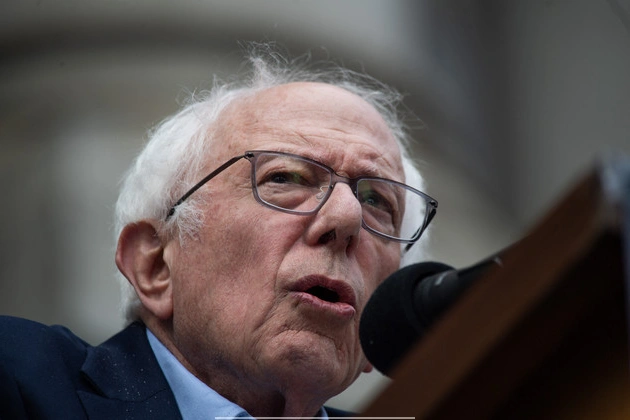
Democrats find themselves embroiled in a contentious debate regarding the role of super PAC spending in primary elections. The recent call by Sen. Bernie Sanders and seven Democratic senators to limit the influence of wealthy donors and super PACs has reignited longstanding tensions within the party.
The Call for Reform
In an open letter addressed to Senate Minority Leader Chuck Schumer and DNC Chair Ken Martin, the senators urged for measures to curb the impact of super PACs in Democratic primaries. They emphasized the need to address the concerns of voters who are increasingly wary of the influence of money in politics, especially in the lead-up to the 2026 midterms.
The letter highlighted the public’s dissatisfaction with a system that allows individuals like Elon Musk to funnel significant sums of money into political campaigns. It underscored the urgency for the party to take action and lead by example in the fight against corruption.
Historical Context
This latest development echoes past debates within the Democratic Party, stemming from the landmark Citizens United v. FEC Supreme Court ruling in 2010. The decision, which unleashed a flood of unrestricted political spending, has been a focal point for progressives like Sanders, who have consistently challenged the party’s ties to wealthy donors.
Progressive activists have criticized candidates for accepting support from groups like the American-Israel Public Affairs Committee and the cryptocurrency industry, citing concerns about undue influence in primary elections.
Challenges and Criticisms
Despite the senators’ call for action, questions remain about the feasibility of enforcing donation restrictions on super PACs. The traditional separation between national party organizations and independent expenditure groups presents logistical challenges in implementing such measures.
Former DNC Chair Jaime Harrison’s critique of the letter reflects broader skepticism within the party about the practicality of passing resolutions without concrete legislative action.
Internal Debate and Future Prospects
The discussion around super PAC spending reflects deeper divisions within the Democratic Party regarding campaign finance reform. While some advocate for stringent restrictions to protect the integrity of elections, others caution against unilateral disarmament that could leave Democrats vulnerable to well-funded Republican opposition.
The ongoing debate underscores the complex dynamics at play within the party and the broader implications of campaign finance decisions on electoral outcomes.
As Democrats navigate these challenges, the need for a balanced approach that addresses concerns about money in politics while maintaining competitiveness in elections remains paramount.











